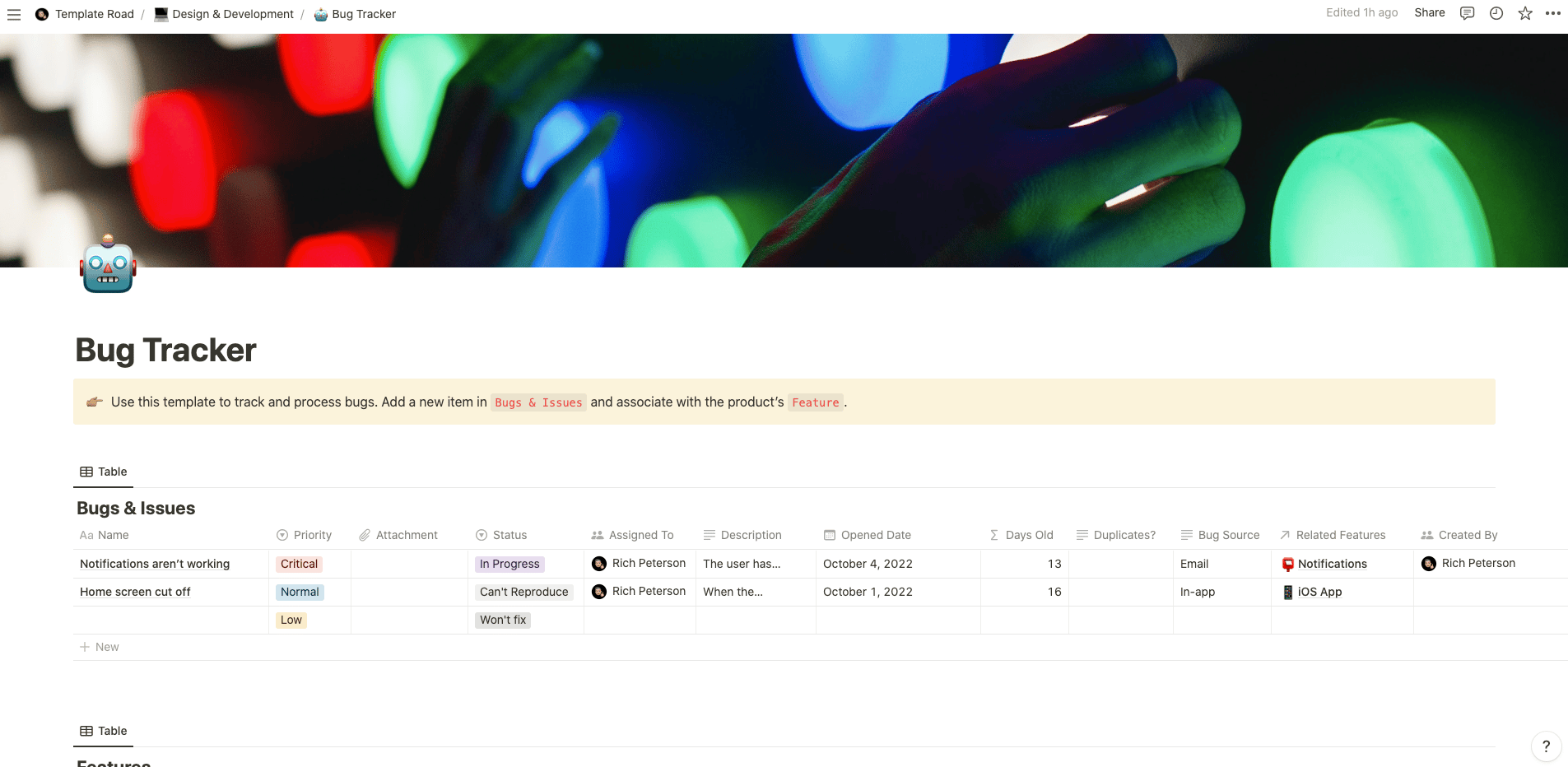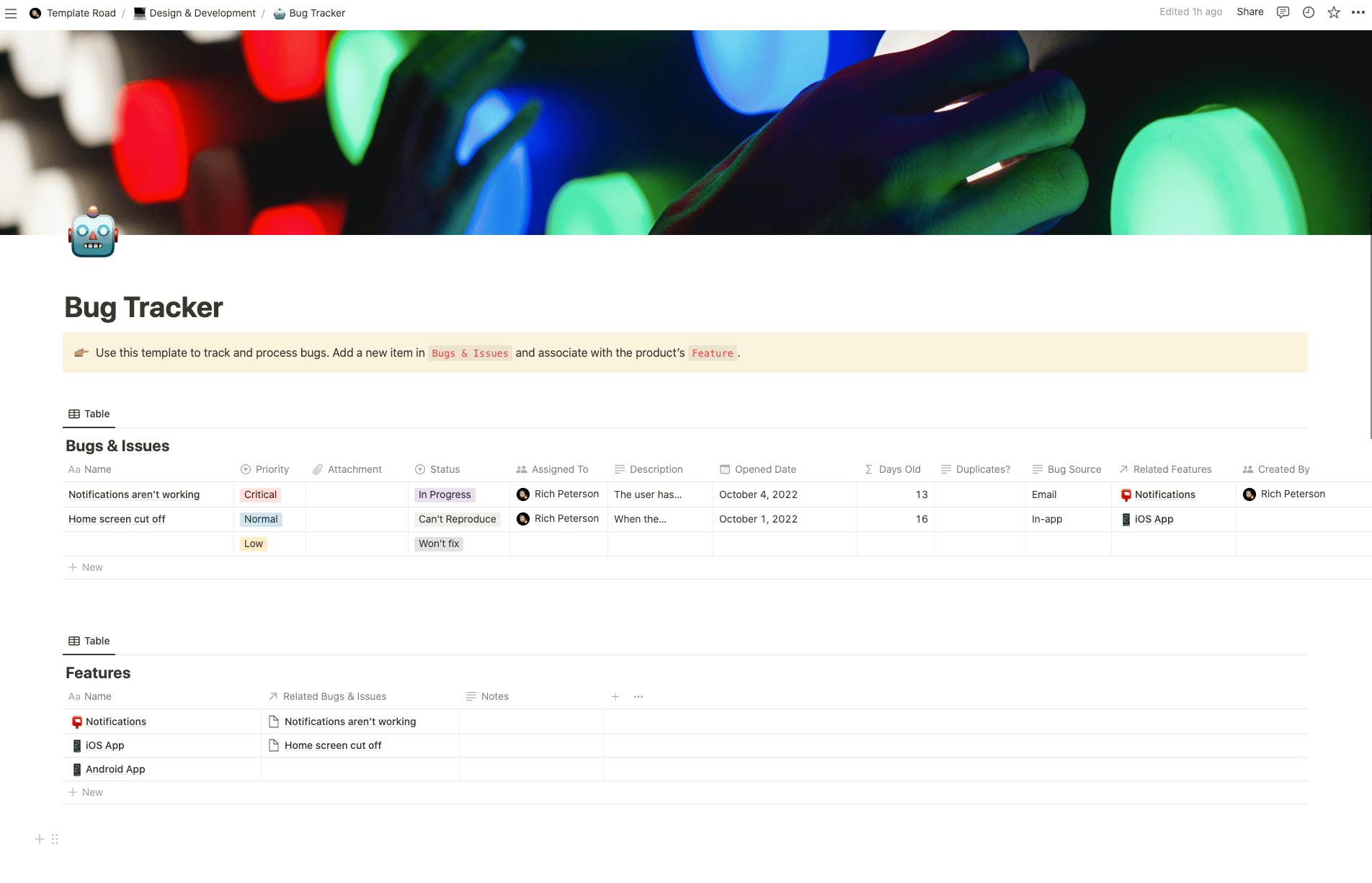Track, prioritize, and squash your bugs with this bug tracker template.
Buy on
Contents
Notion – Bug Tracker Template
Track, prioritize, and squash your bugs with this bug tracker template.
Great software needs to function flawlessly. With each new feature, functionality tweak and design update, you run the risk that bugs may appear. For every “stop everything” bug fix, there are a dozen mostly annoying bugs. Track everything in one place with this Notion bug-tracking template.
——————————————-
What you need before purchase
- Basic knowledge of how to use Notion
- Paid Notion account if you’re looking to add lots of content to your template / Notion account (sign up here). Not much content? You’re able to use their free account.
——————————————-
After purchase
After purchase, you’ll be able to view the template immediately. The template can be added to your Notion account by:
- Click on the template download link in Gumroad
- When viewing the Notion template, click on the “Duplicate” link in the top-right of your screen
- The template will now be available in your own Notion account
For ongoing use, the steps are:
- Login to Notion and select the template you want to view
- Click on the Duplicate link in the top-right of your screen to create a copy to use
- You’ll be able to retain the Notion template and work on the Duplicate (with a new name) and can repeat this process whenever you want to use the template again
What are bug and issue tracking?
Bug tracking is a process of recording, prioritizing, and managing the flow of information about defects in a product or service. It’s also known as defect tracking or problem management. Bug tracking systems are used by developers, testers, project managers, and other stakeholders to manage their projects. They help them keep track of all the changes made to the codebase and ensure that they don’t miss any critical updates.
Issue tracking is a process of capturing, prioritizing, and handling requests for change. It’s also known as request management or feature request management. Issue-tracking systems are used by development teams, marketing departments, and other stakeholders to handle customer feedback and requests for new features. They help them prioritize tasks and make sure that they don’t get lost among all the other things going on in the company.
What is an issue tracker?
- An issue tracker (also called a ticketing system) is a tool used to record and organize user-reported problems with software products. The term “issue” can be confusing because it has several meanings:
- A bug is a mistake or error in a program or system. Bugs may cause errors, but not every error is a bug. For example, if you type the wrong URL into your browser, this isn’t a bug; it’s just a typo.
- An enhancement request is a suggestion for improving a program or system. For example, you might want to add a feature so that users can rate comments. This would be an enhancement request.
- A support request is a request for assistance from someone who knows how to fix a particular problem. For example, you could ask for help finding a missing file. This would be a support request.
The terms “bug”, “enhancement request”, and “support request” are often used interchangeably, although some people use different terminology.
How do I know whether my organization needs an issue tracker?
If you’re working on a team that develops and maintains multiple programs at once, then you need an issue tracker. You’ll have to coordinate between these programs, and you won’t be able to effectively do this without a central place where everyone can see what’s happening. An issue tracker will allow you to easily communicate with each other about the status of your work.
If you’re working on a single large program, such as a website or mobile app, then you probably don’t need an issue tracker. But if you’re developing a small number of related programs, you should consider using one. A good way to decide whether you need an issue tracker is to think about the types of issues you encounter while working on your projects. Do you find yourself having to repeat the same steps over and over again? Or do you spend most of your time fixing bugs instead of adding new features? If you answer yes to either question, then you definitely need an issue tracker.

